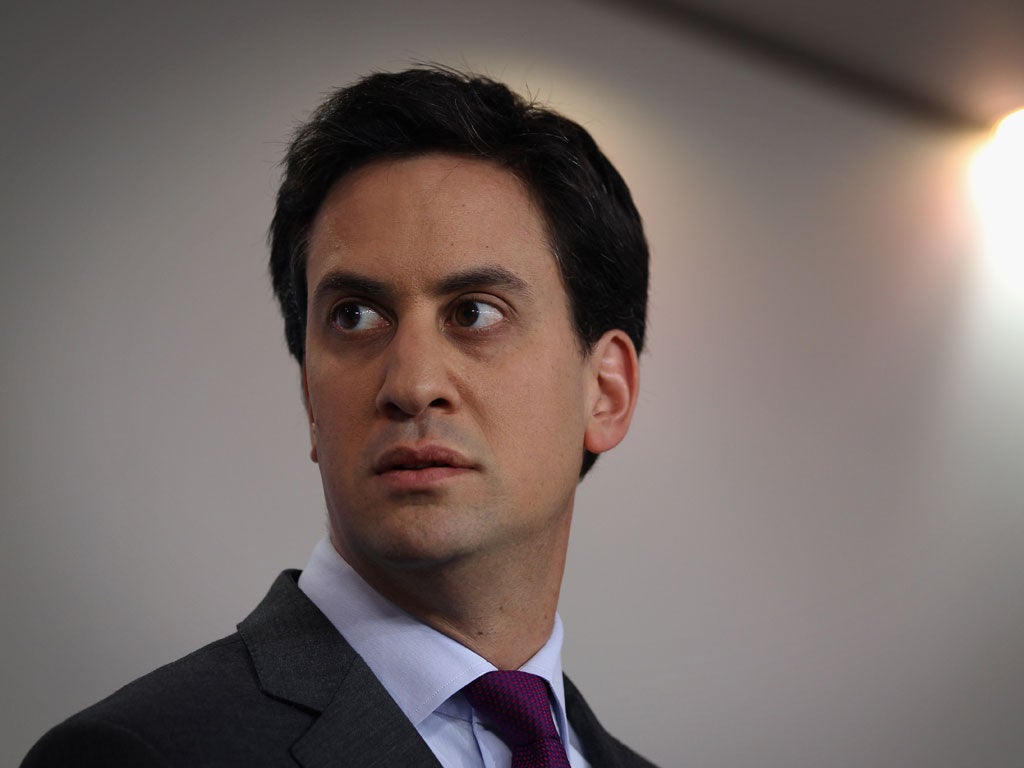Ed Miliband says he wants to reform mental health care. My years on the front line make me sceptical
The Coalition's programme of cuts have had a disproportionate effect on the mentally ill and it will take more than words to fix that

There were plenty of times during the last 10 years when I said to myself “I can't do this anymore”. The phrase will be familiar to mental health workers up and down the country, often uttered following one of the tragically routine incidents in our working lives: The moment when you tell someone you've had to make call that may lead to their loss of liberty, the funerals attended only by professionals, or the heartbreak of admitting to someone clearly in the grip of torment that there is nothing you can do to help.
It's tempting to say it was some dramatic event of this nature that lead me, in February of this year, to tell my line manager that I really couldn't do this anymore, but it wasn't. After a decade on the front line, I'd got to the point where my skin was thick enough to cope with the endless cycle of disappointment and frustration. What really did for me was the inescapable conclusion that no matter how hard I, the organisation I worked for, or the sector as a whole toiled away, things just weren't going to get better. How then, should I react to the speech given yesterday by Ed Miliband, in which he stated his intention to “deploy all the resources of Britain” in order to best meet “the challenge of mental health”?
Perhaps it’s best to start with a look at the current state of our mental health system. Prior to the financial crisis of 2008, the sector was just about coping. Granted, it was still very much the Ugly Duckling of health care, but there was a sense that we were bailing the ship out at a rate that was roughly approximate to the water we were taking on. Resources were always scarce, margins of error were wafer thin and morale was never better than adequate, but if things stayed as they were, we would just about muddle through.
As it happened, things did not stay the same. I remember a feeling of dread slowly spreading across the sector as the economic news got more and more apocalyptic. At first, it felt like a phoney war: Lehman Brothers had gone bust and voices across the political spectrum predicted dire consequences, yet the world continued to turn. However, by 2010 things started to happen and happen very quickly. At this time I was a Housing Support Worker for a local charity and like most voluntary sector organisations, we were nearly 100 per cent dependent on local government and the NHS for funding. Just prior to the general election, a huge chunk of this funding was withdrawn and services that our clients had relied on for years began to close or scale back. At first, we hoped the Big Society would come riding to the rescue, but as the Coalition eased into power, these hopes faded. I would love to say that this was where the bad news ended, but the brutal truth is this was just the beginning.
The next wave of despair to engulf the sector had started to build on Labour's watch when they introduced Employment and Support Allowance, a benefit of Kafkaesque complexity which many people with mental health problems rely on. Helping clients negotiate their way through the Work Capability Assessment, a short face-to-face interview designed to determine the clients eligibility for benefits proved an infuriating experience for us, and was more stressful for our clients, usually people already at the limit of what they could cope with. Even so, we weren't prepared for just how harsh the benefits system as a whole would become under the Coalition.
Night after night, the news carried stories of proposed reductions to the various sources of income or relief that people with mental health problems rely on. The squeeze on housing benefit and the plan to cut council tax benefit may sound like they only affect peoples' income to the tune of a few pounds a week but when put in the context an already meagre settlement and rising prices, they conspire to make tough lives even tougher.
So this is where we're at now: A perfect storm where services across the board are already creaking ominously, yet will still have to hold steady against a rising tide of poverty, social ills and the 77 per cent of cuts that the Institute for Fiscal Studies says are still to come.
Against a backdrop such as this, it's hard to welcome the content of Ed Miliband's speech with anything other than open arms. Yet, if he is serious about getting to grips with the problems in the mental health sector, he must be prepared for long, hard and unpredictable fight, that has so far bested every governmental challenger.

Join our commenting forum
Join thought-provoking conversations, follow other Independent readers and see their replies